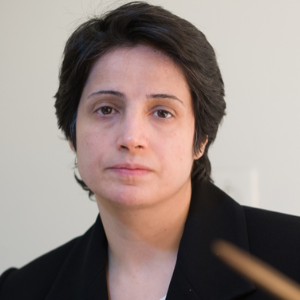This statement was released by PEN International on July 10, 2014.
On July 9, 2013, the mutilated and burned body of Globo TV news presenter Anibal Barrow was found, two weeks after he was abducted. One year on, despite a few welcome advances by the authorities, an alarming climate of fear, persecution, and impunity prevails for journalists in Honduras.
PEN calls on the Honduran authorities to do everything in its power to safeguard all journalists working in the country. It calls on the Honduran authorities to carry out a prompt and thorough investigation into all murders of journalists, and to ensure that all those responsible, including the intellectual authors, are brought to justice.
Journalists continue to be murdered at an alarming rate in Honduras—most recently, radio presenter Luis Alonso Fúnez Duarte, who was shot dead by unknown assailants on June 23, 2014—while others face regular harassment and death threats for their peaceful exercise of the right to free expression. Over 90 percent of journalist murders remain entirely unsolved. Although a few convictions have been obtained for the murder of journalists, mainly in high-profile cases—one of Barrow’s killers has been sentenced and imprisoned to date—most may be considered only partially solved owing to the authorities’ failure to prosecute those responsible for ordering the crime—the intellectual authors.
Radio presenter Luis Alonso Fúnez Duarte became the third journalist to be killed in Honduras since President Juan Orlando Hernández came into office in January 2014. According to eyewitness testimony, the killers shot Fúnez at least five times as he arrived home on his motorcycle with his son. He died at the scene. Fúnez was the host of a music show on local radio station Súper 10 and a political satire program called Barriendo y Trapeando (Sweeping and Mopping) in Catacamas, Olancho department.
Also killed in Olancho department less than a month earlier was Óscar Anthony Torres Martínez, shot dead on June 1. Just four days earlier, on May 28, community radio journalist Hernán Cruz Barnica was murdered in Copán department. According to PEN’s information, the night before he was shot, Cruz had spoken on his program about human rights issues in the region and threats that he had recently received. Other media workers who are not journalists have also been killed—on April 11, media worker Carlos Hilario Mejía Orellana was stabbed to death at his home, despite the Inter-American Commission on Human Rights (IACHR) having ordered the Honduran government to protect him.
Two convictions have been obtained in recent months for the murder of high-profile journalists, including Aníbal Barrow. Presenter of the daily news program Aníbal Barrow y Nada Más, Barrow was abducted on June 24, 2013; his body was discovered—mutilated and burned—16 days later on July 9. However, one year later only one of at least six suspects has been convicted. On March 14, 2014, a juvenile court found Gabriel Armando Castellanos Pérez, aged 18, guilty of Barrow’s murder; he reportedly faces a maximum of eight years in prison since he was a minor when he committed the crime. The five other suspects have still to be tried, while those suspected of hiring Barrow’s killers are still at large.
The same is true of the masterminds of the murder of HRN Radio director Alfredo Villatoro Rivera. Villatoro, one of the country’s best-known journalists and a friend of former President Porfirio Lobo, was found dead on May 15, 2012, six days after he was kidnapped from his car in broad daylight. His body was found on a pavement dressed in the uniform of a special operations police unit and with a red handkerchief covering his face, according to news reports. He had been shot dead. PEN welcomes the news that three men convicted of the aggravated abduction and murder of Villatoro received life sentences on June 11, 2014, following a series of delays in sentencing, but reiterates the plea of Villatoro’s son for the case not to be closed in order to allow the intellectual authors to be brought to justice as well.
Background
According to PEN’s information, at least 41 journalists have been killed since 2003—35 since the coup d’état in June 2009—while other media workers like Carlos Hilario Mejía Orellana have also been killed. Of these 41, only 10 cases have been prosecuted and just four have resulted in a conviction, according to figures provided by the government during a hearing at the IACHR on March 25, 2014 in which PEN International, PEN Canada and the International Human Rights Program of the University of Toronto presented their joint report—Honduras: Journalism in the Shadow of Impunity. Impunity thus remains the norm in over 90 percent of cases of murdered journalists, a startlingly high rate also confirmed by a report by the new National Commissioner for Human Rights (Comisionado Nacional de los Derechos Humanos—CONADEH) to mark Honduran Day of the Journalist (May 25).
PEN welcomes news of a long-overdue bill for a law to protect journalists and human rights defenders in Honduras. According to PEN’s information, on June 3, the Honduran parliament approved a proposal to enact a Law to Protect Human Rights Defenders, Journalists, Social Communicators (a category that includes community radio journalists and bloggers) and Legal Practitioners (Ley de protección para las y los defensores de derechos humanos, periodistas, comunicadores sociales y operadores de justicia). The text of the bill will apparently not be made public until the law is passed; however, it is thought to include both preventative and protection measures for those in danger.
PEN urges the Honduran state to establish an effective protection mechanism for journalists and human rights defenders in full consultation with civil society, in addition to improving the implementation of precautionary measures issued by the IACHR. PEN also urges the government to ensure that these and any new legal mechanisms intended to improve journalist security come into effect with adequate financial, human, and technical resources, as well as political will, in order to guarantee effective implementation.
For more information, please visit PEN International.

